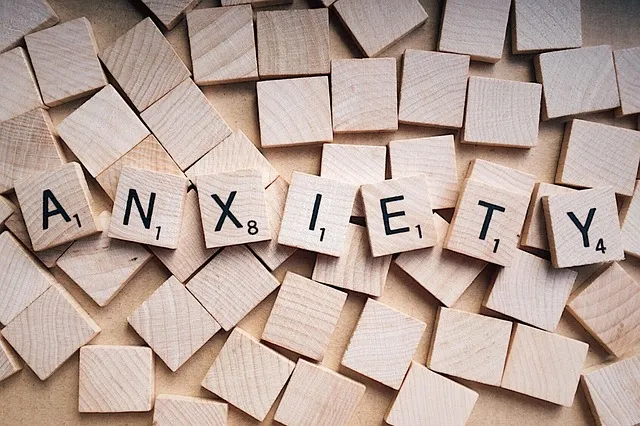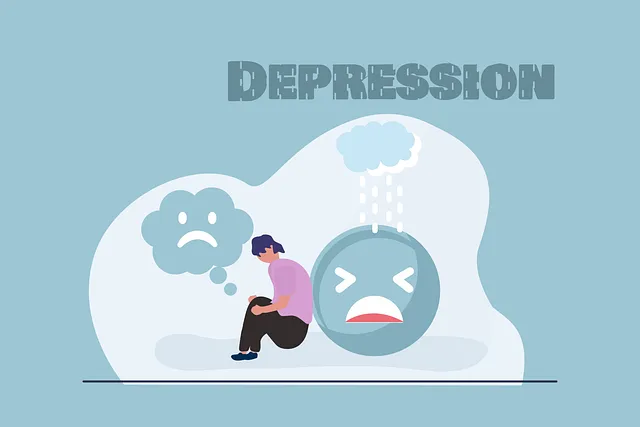Kaiser Permanente's training programs in Castle Rock offer holistic mental wellness self-assessment tools that empower individuals with evidence-based methods for personal reflection and self-care. These tools, designed with cultural sensitivity, identify symptoms and underlying factors, incorporating validated questionnaires and qualitative feedback. Public awareness campaigns and mindfulness meditation techniques have shown positive outcomes in stress reduction and community support.
Mental wellness self-assessment tools play a crucial role in individual well-being. This article explores an innovative approach inspired by Kaiser Permanente’s methodology, delving into the development process of effective assessment tools. We discuss key features and components to ensure comprehensive evaluations. Furthermore, it highlights successful implementation of these tools through Kaiser Permanente training programs in Castle Rock, measuring their impact on mental health awareness and community well-being.
- Understanding Mental Wellness Self-Assessment: The Kaiser Permanente Approach
- Developing Effective Tools: Features and Components of a Comprehensive Assessment
- Training Programs in Castle Rock: Implementing and Measuring Impact
Understanding Mental Wellness Self-Assessment: The Kaiser Permanente Approach

Mental wellness self-assessment tools play a pivotal role in empowering individuals to take charge of their mental health. One renowned organization that has made significant strides in this area is Kaiser Permanente, known for its comprehensive training programs in Castle Rock and beyond. Their approach emphasizes a holistic understanding of mental wellness, incorporating various dimensions such as emotional, psychological, and social well-being.
By leveraging evidence-based methods, Kaiser Permanente’s self-assessment tools are meticulously designed to facilitate personal reflection and promote Self-Care Practices. These tools often incorporate interactive features tailored to diverse cultural backgrounds, reflecting the organization’s commitment to Cultural Sensitivity in Mental Healthcare Practice. Through Public Awareness Campaigns Development, they enable individuals to identify potential mental health issues early on and take proactive steps towards maintaining and improving their overall mental wellness.
Developing Effective Tools: Features and Components of a Comprehensive Assessment

Developing effective mental wellness self-assessment tools requires a thoughtful blend of scientific rigor and user-centric design. At Kaiser Permanente training programs in Castle Rock, experts emphasize the importance of creating comprehensive assessments that not only identify symptoms but also evaluate underlying factors contributing to an individual’s mental health status. A robust tool should incorporate various components, such as validated questionnaires, qualitative feedback mechanisms, and risk management planning elements, tailored to align with best practices in Mental Health Awareness.
The ideal assessment goes beyond mere screening by considering cultural competency aspects crucial for Healthcare Provider Cultural Competency Training. By integrating these features, the tool can ensure it resonates with a diverse range of users, fostering trust and accuracy in self-reporting. Additionally, integrating Risk Management Planning for Mental Health Professionals ensures that the assessment provides actionable insights while adhering to safety protocols, thereby enhancing the overall effectiveness of mental wellness interventions.
Training Programs in Castle Rock: Implementing and Measuring Impact

In Castle Rock, Kaiser Permanente has been at the forefront of mental wellness initiatives, introducing comprehensive training programs that have garnered significant attention. These programs are designed to empower individuals with valuable tools for managing and improving their mental health. One notable offering is the focus on mindfulness meditation techniques, which have shown remarkable results in reducing stress and anxiety among participants. By integrating these practices into daily routines, individuals can enhance their overall well-being and resilience.
The training extends beyond individual benefits, aiming to create a supportive community. Social skills training, another pillar of these programs, fosters connections and encourages open dialogue about mental health challenges. This collective approach not only alleviates symptoms of anxiety but also promotes a sense of belonging and understanding. As the impact of these initiatives becomes more evident, it’s clear that Kaiser Permanente’s efforts in Castle Rock are making significant strides towards a healthier, more supportive community environment.
The development of mental wellness self-assessment tools, as exemplified by Kaiser Permanente’s approach, plays a pivotal role in empowering individuals to take charge of their mental health. By incorporating comprehensive features and components, these tools can facilitate early detection and intervention. The successful implementation of training programs in Castle Rock highlights the potential for such initiatives to positively impact communities, underscoring the significance of accessible and effective mental wellness assessments. This strategy not only enhances individual well-being but also fosters a more supportive and resilient society.






